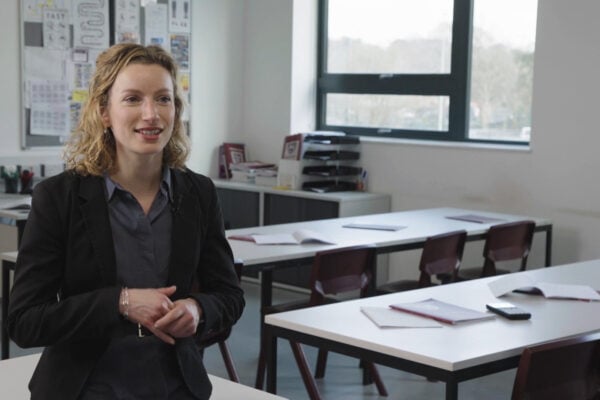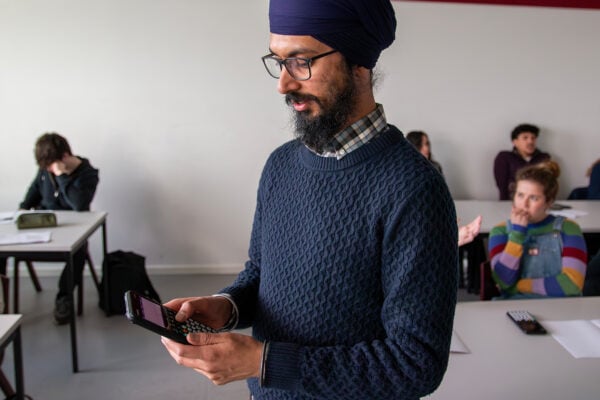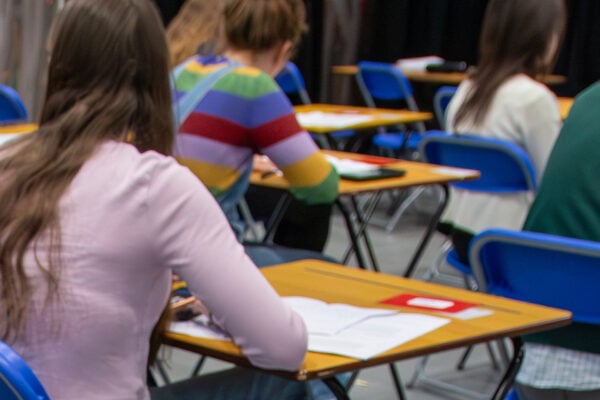Unlocking everyday superpowers: the relevance of studying Maths beyond GCSE

From engineering marvels to culinary delights, maths plays a vital role in almost everything we do. But, unfortunately, many students find maths a snooze-fest. They drop Maths the minute they finish their GCSEs, to never look back. As a result, many students miss out on the mind-blowing possibilities that mathematical principles offer in their future lives. How to warn them and not bore them? We spoke with Math expert Simon May, who talked us through the wonders of maths beyond GCSE and how maths is shaping the world we live in.
Maths beyond the GCSEs
From ancient times, Maths has been considered an important area of knowledge. It provides people with a solid foundation for logical reasoning and problem-solving, which is needed in almost every profession, from a nurse tailoring a medicine to a patient’s body weight to a cashier calculating the change. However, in the modern world, for many students, the study of Maths ends with completing the General Certificate of Secondary Education (GCSE). The perception that Maths is confined to the classroom and only applicable to abstract concepts has led to a disconnection between the subject and its relevance in everyday life, resulting in a tragic loss of human potential.
Is Maths really that hard?
One of the main complaints students have regarding Maths is that it’s hard. However, according to Maths expert Simon May, it’s not the subject itself that’s difficult but rather how it’s approached. Students often feel overwhelmed during learning, particularly if they struggle with a specific concept or question. Simon, , empathises with this struggle. “Teachers face the daunting task of covering a vast syllabus within a limited amount of academic time, all while catering to a classroom of an increasing number of students with varying levels of interest.”
Equations, equations and… equations
When the word “Maths” is uttered in a classroom, many students feel their enthusiasm deflate faster than a balloon losing air. They imagine dry equations, rigid rules, and a subject as thrilling as watching paint dry. Then, if Maths assignments get hard, it’s tempting to just let go. This, right here, is where teachers play an essential role. Simon says: “The solution doesn’t lie in pushing students harder. It lies in showing students that Maths is everywhere, that it’s dynamic and exciting.”
He explains: “Most students spend hours per day on their mobile phones, not realising they use Maths. Each pixel on a mobile phone screen is like a small computational unit, working together to create the stunning visuals we see. The countless calculations that happen in a fraction of a second result in the dazzling colours and sharp edges we often take for granted.”
Another modern-day example is new and exciting development of AI. Simon says: “At it’s core, this is nothing more than a complex Mathematical model, yet it seems magical to most people using it. Examples like these prove that Maths is all around us, and it’s our job to ensure students see it.”
Maths in everyday life
Even though mobile phones and modern technologies directly result from mathematical principles, students often wonder, “Why do I need to learn Maths if I’m not going to be a mathematician?” Simon says: “Most students don’t realise that a certain level of Maths is needed in every profession and that Maths will become even more important in the future.”
The recent global pandemic is a prime example of how crucial Maths is in our society. While the virus was wreaking havoc, Maths played a vital role in understanding and minimising the risks, developing treatments and vaccines, and implementing safety measures. As Simon points out, the situation could potentially have been very different without the ability to use Maths to calculate predictions based on data and assumptions. He adds: “Not to mention the role of Maths in news items about the pandemic. Without a basic understanding of mathematical principles, it’s impossible to interpret statistics and graphs with any clear meaning.”
A great example of the practical application of Maths is GPS. Students use tools like Google Maps to navigate a new location but usually don’t wonder how it works. Again, the answer lies in Maths. GPS relies on complex mathematical calculations to accurately determine a receiver’s position. For instance, some calculations use distance measurementsfrom known points, while others measure signal travel time from multiple satellites to calculate distance. Additionally, Maths is used to correct errors, convert between coordinate systems, and adjust for signal delay caused by atmospheric conditions. Without Maths, GPS, as we know it today, would not exist. Once a position if fixed, then network route planning uses other recently developed maths applications to determine the shortest or quickest route from A to B.
Okay, Maths is essential. Now what?
Simon emphasises the importance of understanding that not everyone requires the same level of Maths knowledge and practice. While some students may aspire to become rocket scientists, engineers, or entrepreneurs like Steve Jobs, others may not. Once you have a grasp of the fundamentals, you can decide whether to specialise further or apply what you have learned in your daily life. However, Simon also believes that everyone should have some basic Maths skills. Even if you’re not interested in the technical aspects of GPS and mobile phones, Maths is essential in everyday activities such as calculating a mortgage, buying a car, or budgeting for expenses like shoes and games. Simon says: “In daily life, every student should have a basic understanding of at least numeracy, basic trigonometry, ratios and probability and risk. The rest is a bonus.”
To sum up, delving into the study of Maths beyond the limitations of GCSE exposes a realm brimming with real-world uses and underlying relationships tightly woven into our daily existence. By acknowledging the importance of maths in domains like managing personal finances, making informed decisions, tackling problems, and even interpreting the news, students can unleash their potential and use Maths to create the future.
Book a training
Motivation starts with understanding. Casio provides training for Maths teachers so they learn how to use our calculators to engage students and help them to improve their problem-solving skills. Book a training session below!



